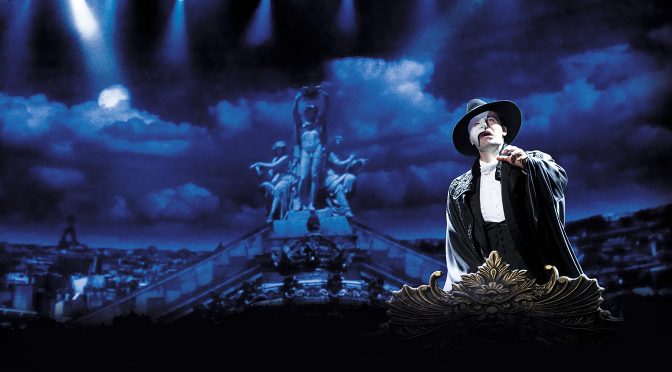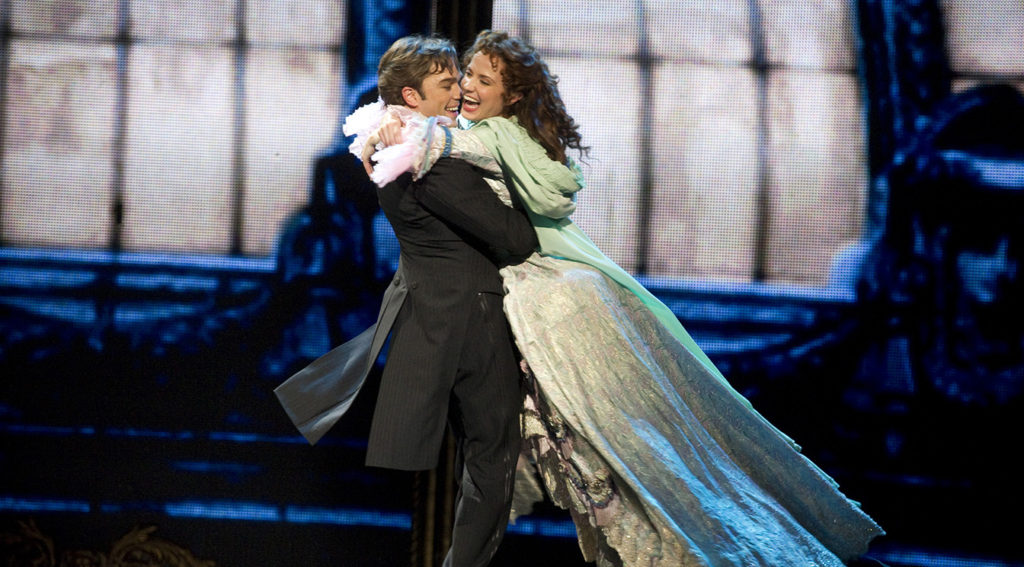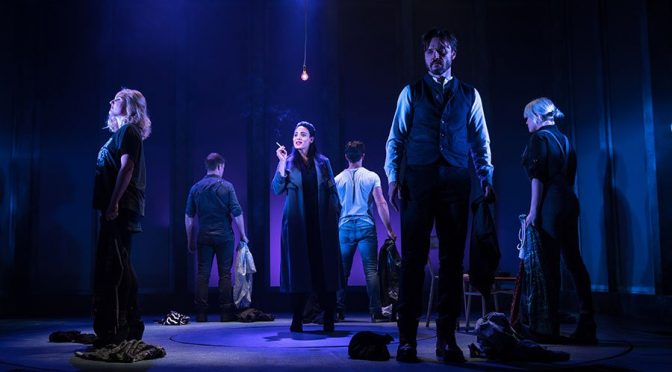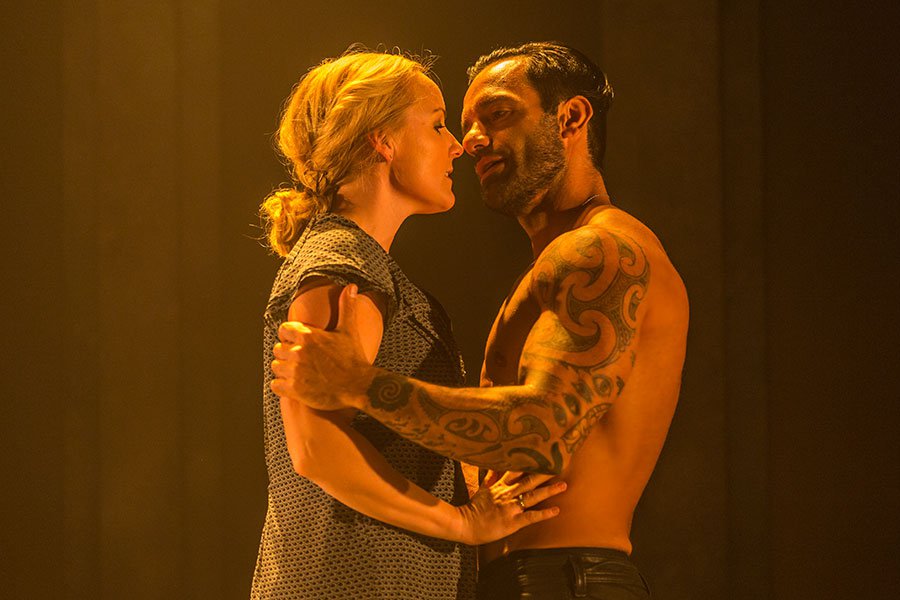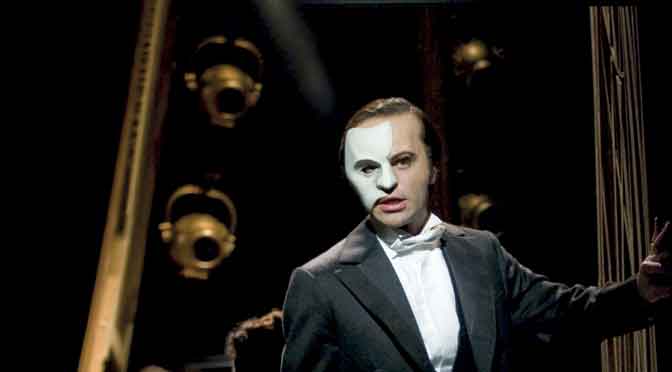Jason Robert Brown’s song cycle is presented by Lambert Jackson Productions after the success of its lockdown show, The Last Five Years. The collection showcases Brown’s work as a composer and lyricist – there are some great songs – while affording the cast a chance to impress. The major talent recruited here is stunning and the show enjoyable.
Searching for connections in the cycle can prove off-putting. If the idea is a decisive ‘one moment’, the scenarios are too generic (and cryptic) to become satisfyingly thematic. Instead, there’s a mix of hope and struggle and a touch too much sentimentality. For good or ill, it’s hard not to imagine many of the numbers as part of a bigger show.
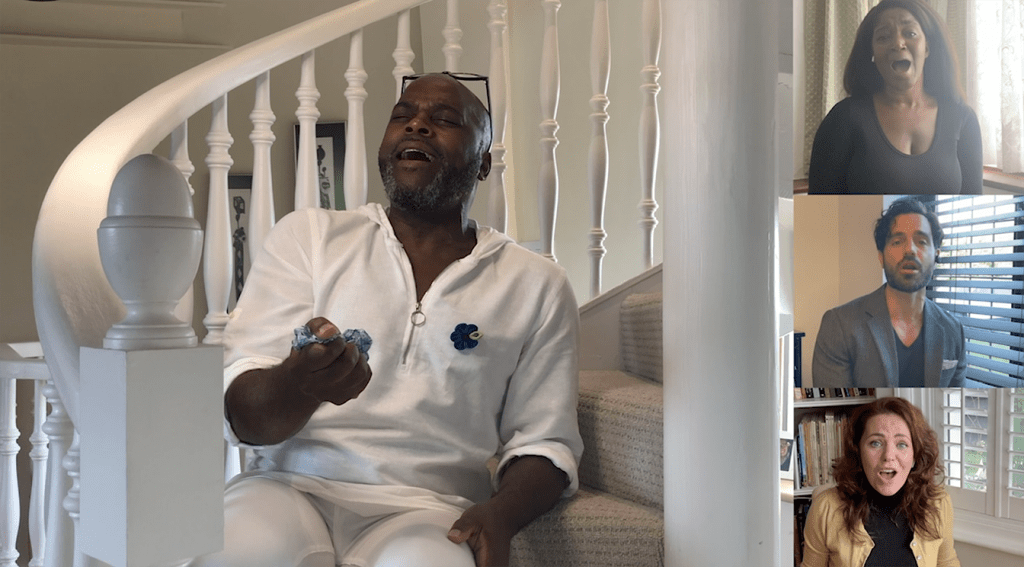
The production contains distractions of its own. Director Séimí Campbell’s decision to cut news footage into the performances is a valiant effort to guide the viewer but tails off as the show goes on. On a lighter note, there’s also the views of the homes of those performing in isolation… what a lovely staircase Cedric Neal has!
Yet the music and performances make Songs for a New World worthwhile. Neal and Rachel John have such gorgeous voices that the whole evening has a sense of power. Both can convey outrage and tenderness with such skill that tears were in my eyes more than once.
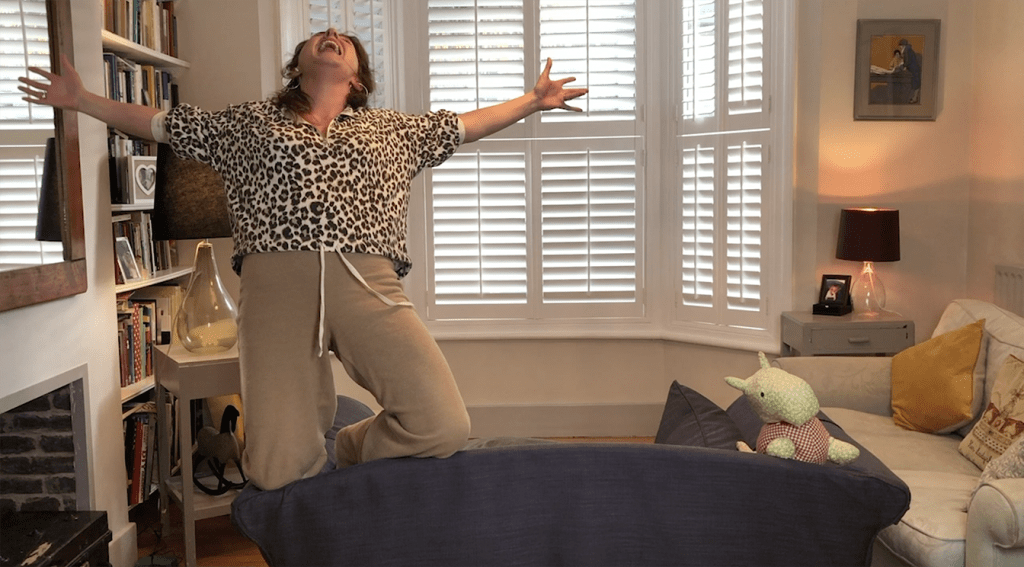
Rachel Tucker’s numbers have a more character behind them. With the funniest songs, Tucker shows what a fine actress she is: making the most of her sofa and the excellent Mrs Claus song (the show’s best pun). It might be noted along the way what a lot of ‘demanding’ women Brown writes about.
Ramin Karimloo is also excellent, although it has to be mentioned that his terrific stage presence is out of place on a screen: in a duet, while John conveys a tête-à-tête, Karimloo makes sure the balcony crowd is getting its money’s worth. Of course, he is still fantastic. And, as a final highlight, there’s a nod to new talent with a debut number for Shem Omari James that he should be proud of.
The singing and musical direction from Josh Winstone is so strong that two (maybe three) numbers that might be less than convincing really shine. With writing as strong as Brown’s, praise doesn’t come higher than that.
Until 25 July 2020


